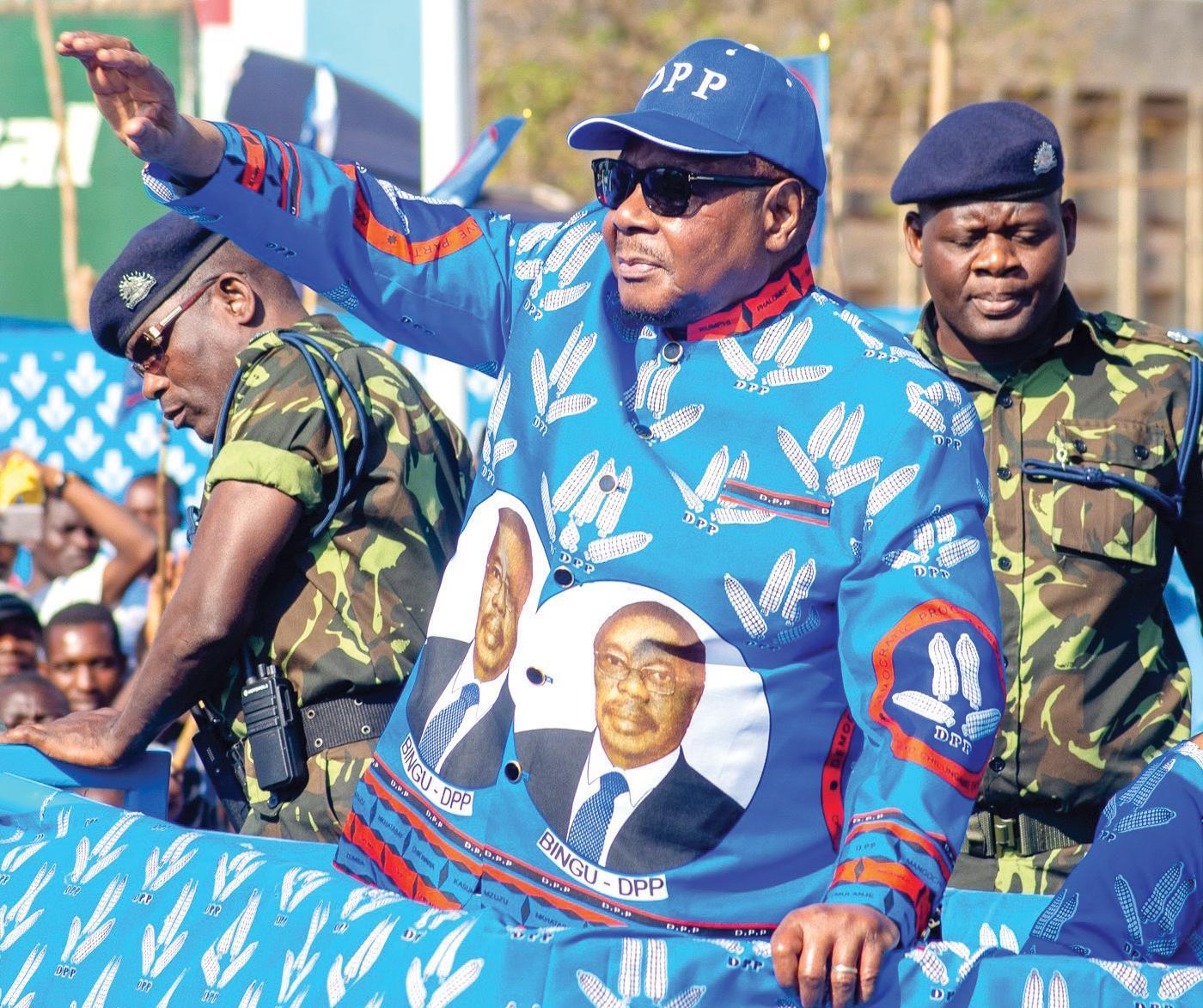By Deogratias Mmana:
Africa-Press – Malawi. Opposition Democratic Progressive Party (DPP) president Peter Mutharika has emerged as Malawian voters’ preferred candidate in a pre-election survey conducted by the Institute of Public Opinion and Research (Ipor).
The survey, conducted between July 6 and 20, sampled over 2,600 adult Malawians across 27 districts.
It aimed to capture citizens’ views on government performance, trust in the electoral process, voter priorities and voting intentions ahead of the September 16, 2025 election campaign launch.
According to the findings, 95 percent of registered voters said they intend to vote in the forthcoming elections.
“Ahead of the launch of the campaigns, former president Peter Mutharika of the DPP was leading with 43 percent of voter support, followed by President Lazarus Chakwera of the Malawi Congress Party (MCP) at 26 percent,” the report reads.
Dalitso Kabambe of UTM Party came third with five percent, followed by Atupele Muluzi of the United Democratic Front with two percent.
Former president Joyce Banda of the People’s Party registered one percent.
The report also shows that 12 percent of respondents were undecided while six percent declined to disclose their preference.
“Notably, 50 percent of young people aged 18–35 expressed support for Mutharika, indicating strong cross-generational backing,” the report says.
Type of leader preferred
According to the report, 49 percent of Malawians said they would vote for a candidate committed to fighting corruption.
Thirty-nine percent said they would consider manifestos; 34 percent prioritised the economy and 22 percent preferred a leader who would address food insecurity.
The report further reveals that factors such as ethnicity, handouts, region of origin, religious affiliation and family loyalty are expected to have little influence on voters’ decisions.
On trust in the electoral process, 76 percent said they trust the Malawi Electoral Commission, while 31 percent believe the 2025 elections will be free and fair, another 33 percent expect minor issues.
Public trust is largely based on safeguards such as the neutrality of the police and army, transparent vote counting and fair coverage by public media.
The survey also reveals that public perception of the economy is overwhelmingly negative, with 87 percent rating current economic conditions as bad.
More than half of these described them as very bad and 76 percent believe the national economy has worsened over the past year.
However, on government performance, respondents rated the Tonse Alliance administration positively in some areas: 58 percent on health services, 56 percent on water and sanitation and 51 percent on education.
“However, a majority expressed dissatisfaction with economic management, job creation and anti-corruption efforts. Nearly half (46 percent) believe there has been no progress on campaign promises,” the report states.
DEFENDED THE RESULTS—ChasukwaReaction to the survey
Ipor Director of Training and Programmes, Michael Chasukwa, presented the findings to political parties, civil society organisations and the media in Lilongwe yesterday.
Chasukwa defended the results, insisting that Ipor has operated for 11 years and has consistently delivered credible surveys.
He acknowledged that developments since the survey, such as manifesto launches, alliances and selection of running mates, may influence public opinion.
Chasukwa also revealed that Ipor will conduct another survey closer to polling day to gauge how campaign messages have shaped voters’ views.
However, Malawi Congress Party deputy publicity secretary Ken Msonda dismissed the results, accusing those involved of being DPP agents.
Msonda questioned the sample size, saying it was too small given the country’s population of over 20 million.
“Those are fake research results. These people have their own political affiliations. They are paid to do this. Politics is about structures on the ground.
“As a party we are not shaken or moved because we know how to play politics. Who can take Chakwera out? Ignore them,” he said.
Governance expert Augustine Magolowondo said timing is crucial in politics, as public sentiment can change quickly.
He added that political parties must now focus on developing their campaign strategies.
Source: The Times Group
For More News And Analysis About Malawi Follow Africa-Press






